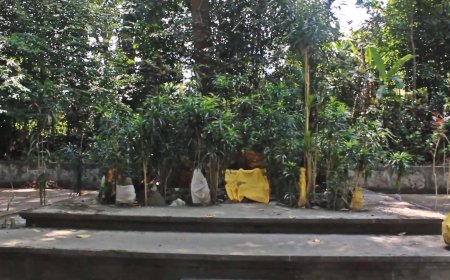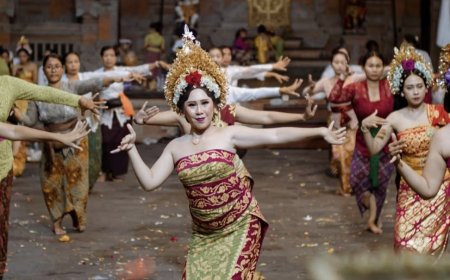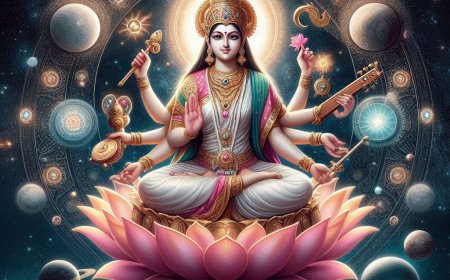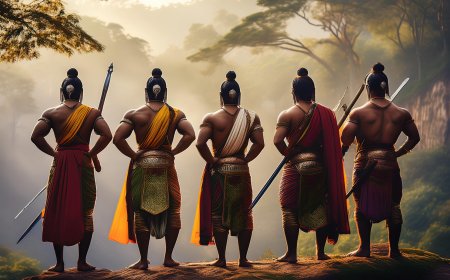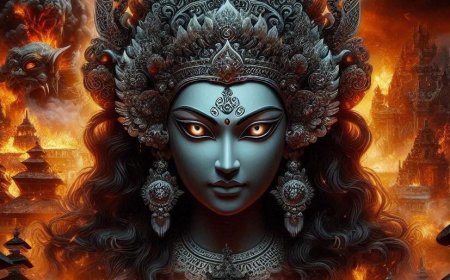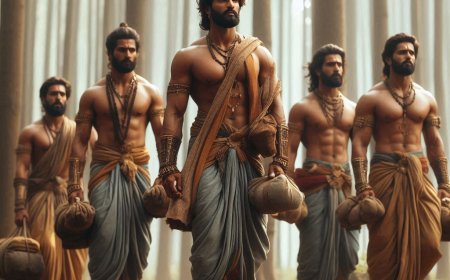Sauptika Parva: The Vengeful Path of Aswatthama & The Dark Fall of Bharata
Sauptika Parwa is the tenth part of the Mahabharata, telling the story of Aswatthama’s revenge after the Kauravas' defeat in the Kurukshetra war. Aswatthama sneaks into the Pandava camp and massacres the soldiers while they sleep. This section also narrates the fate of Aswatthama, who is cursed by Krishna due to his dishonorable actions.
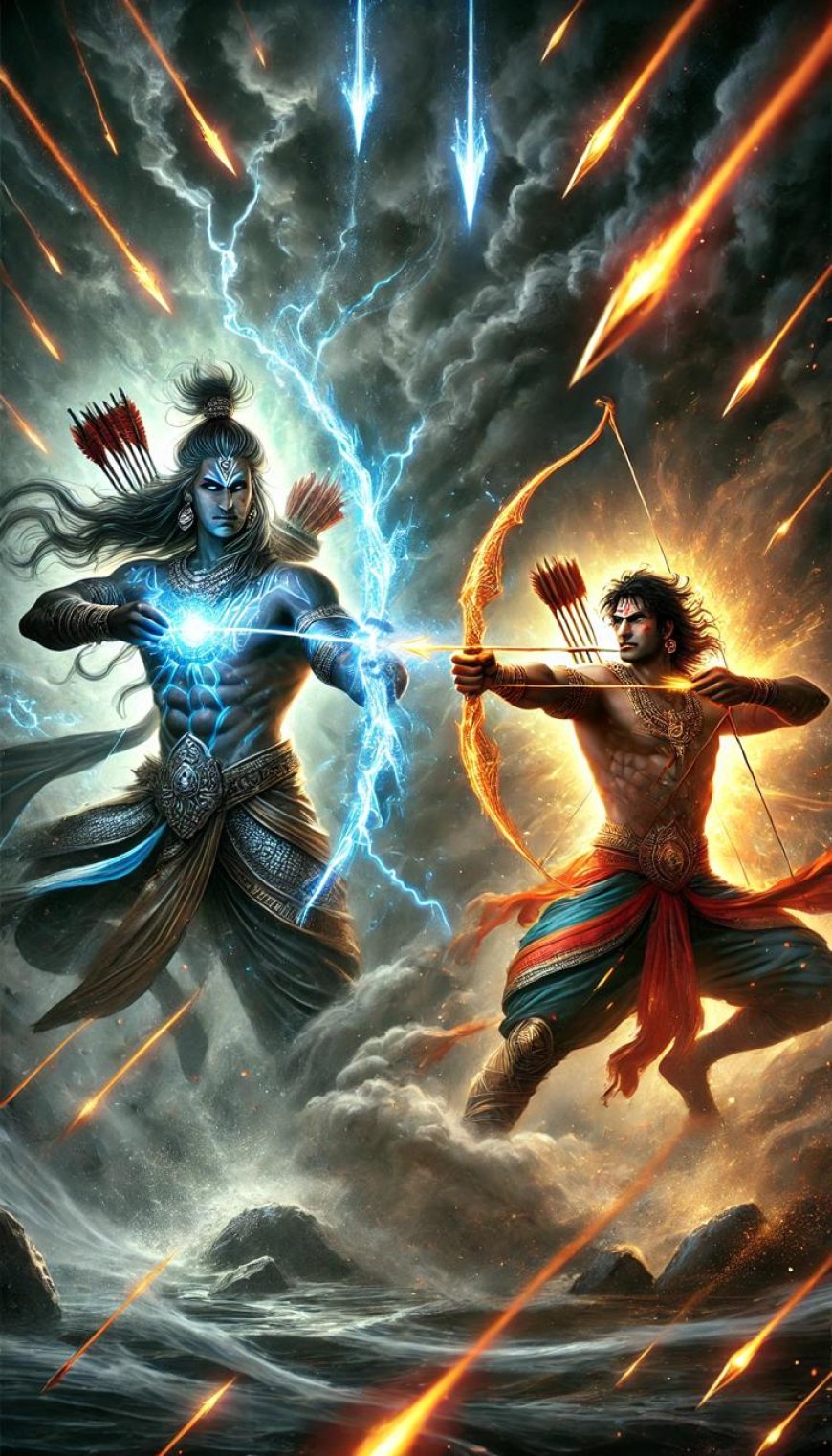
The story begins with Sanjaya, Dhritarashtra's advisor, reporting to his master about three warriors (Kritavarma, Kripa, and Aswatthama) who, after the great defeat of the Kauravas in the Kurukshetra battle, retreated to the forest. They hid there, wounded and fearful, reflecting on the Pandavas' victory after 18 days of battle.
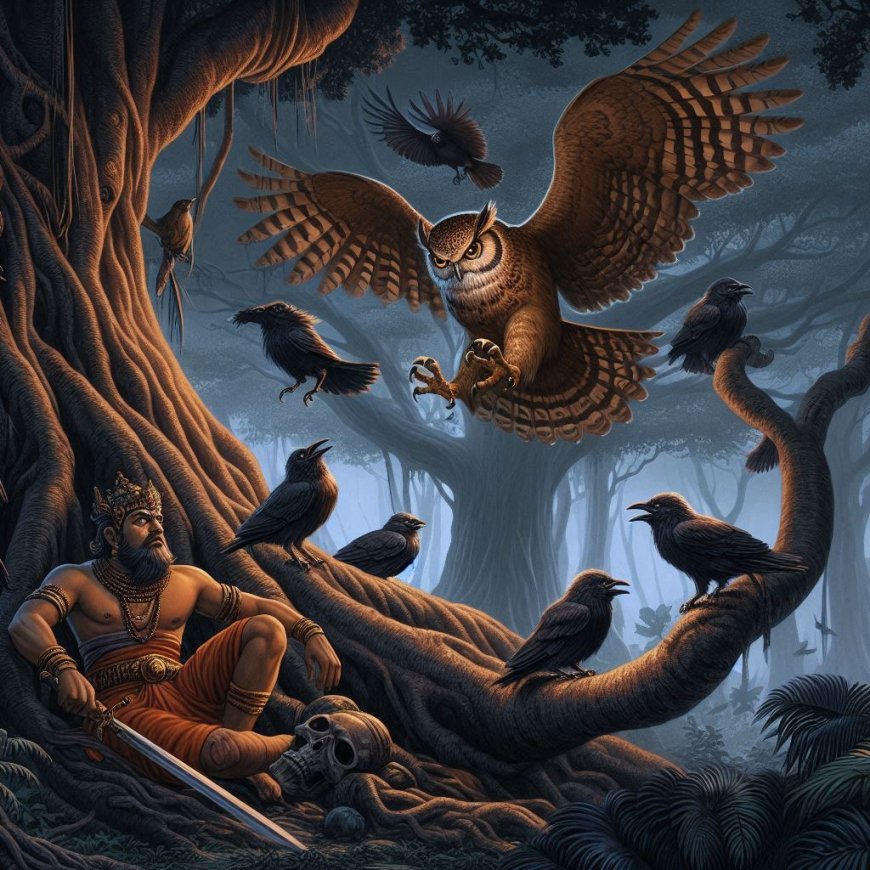
An owl that attacks crows while they sleep (Source: Private Collection)
After resting in the forest, Kritavarma, Kripa, and Aswatthama felt sorrow for the destruction of the Kuru clan and the Pandavas. While Kripa and Kritavarma slept, Aswatthama, filled with rage, witnessed an owl attacking a sleeping crow. Inspired by this tactic, he decided to attack the Pandavas at night, despite it being considered dishonorable.
Aswatthama, angered by Duryodhana's fate and the Pandavas' treatment, woke Kripa and Kritavarma to reveal his plan to kill the Pandavas in their sleep. Although he knew his actions were dishonorable, he believed it was the only way to exact revenge and find inner peace.
Kripa suggested Aswatthama rest and attack the Pandava and Panchala camps the next day, with his support and Kritavarma’s. However, Aswatthama ignored this advice and chose to strike at night. Kripa and Kritavarma accompanied him as they approached the enemy camp to kill all those who were asleep.
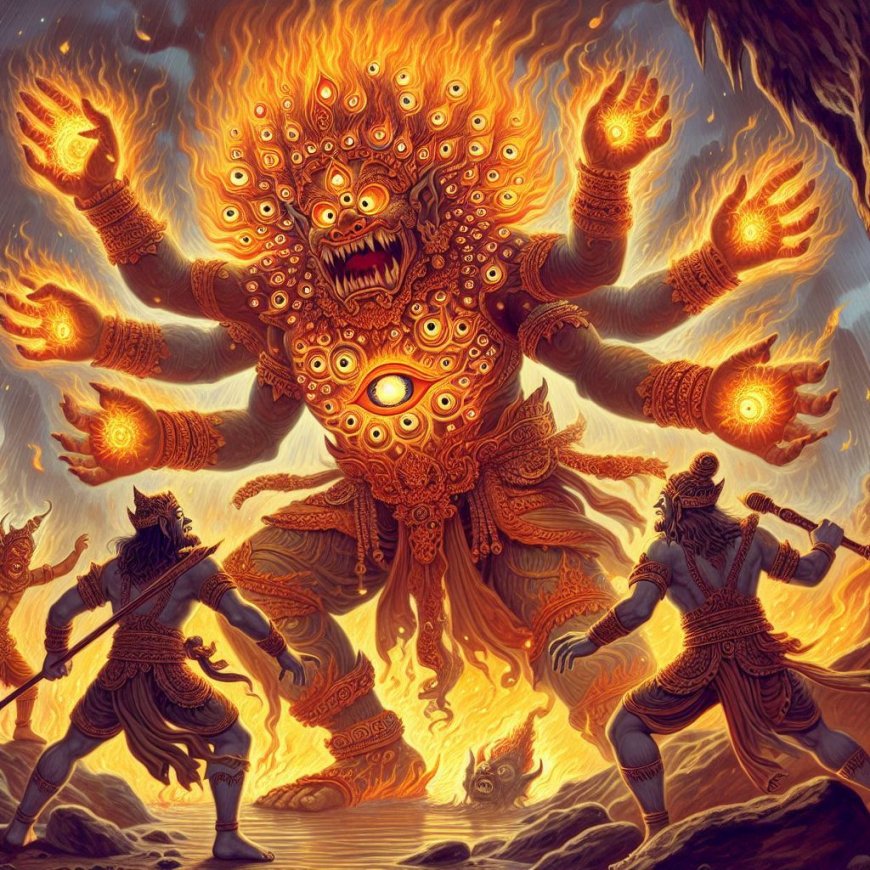
Aswatthama was confronted by a giant creature emitting fire (Source: Private Collection)
Aswatthama, with Kripa and Kritavarma, approached the Pandava camp but was confronted by a fearsome being emitting flames. Despite Aswatthama’s attacks with divine weapons, the being absorbed all his strikes without injury.
Desperate and out of weapons, Aswatthama prayed to Lord Shiva for protection, praising Him with various names and attributes. In response to his devotion, an altar of gold with a blazing fire appeared.
Without fear, Aswatthama performed a ritual surrender to Shiva. Shiva appeared, smiling, and entered Aswatthama's body, granting him divine power and a sacred sword. With this newfound strength and accompanied by supernatural beings, Aswatthama continued his massacre in the enemy camp.
Aswatthama went on a rampage in the Pandava camp, slaughtering thousands of unarmed soldiers in the dark, terrifying night. With his sword, he moved like death itself, destroying anyone who came near, including warriors, horses, and elephants.
The Chaos in the Pandava Camp during Aswatthama's Attack (Source: Private Collection)
In the chaos, frightened elephants and horses trampled tents and fleeing soldiers. The Pandava soldiers, unable to distinguish friend from foe, attacked each other. Kripa and Kritavarma killed those trying to escape at the gates, turning the camp into a sea of death. Aswatthama, consumed by rage, mercilessly killed the sons, grandsons, and followers of Drupada, slaying thousands of warriors who had once fought bravely.
On the darkest night of the Bharata War, Aswatthama, Kripa, and Kritavarma massacred Pandava troops and set fire to their camp in three places. This act destroyed the remnants of the Pandava army and ended the night with brutal cruelty.
Aswatthama, Kripa, and Kritavarma then visited Duryodhana. Hearing that Aswatthama had avenged the death of Dhrishtadyumna and many Pandava heroes, Duryodhana felt satisfied. He blessed the three warriors before dying, and his soul ascended to heaven. With deep sorrow, the three warriors left the place.
The next morning, Yudhishthira learned that Draupadi’s sons and the Panchala heroes had been slaughtered by Aswatthama, Kritavarma, and Kripa. Although they had won the battle, Yudhishthira felt defeated due to the loss of family and shared Draupadi's grief over the death of her sons and brothers.
Yudhishthira instructed Nakula to bring Draupadi and her relatives. When Nakula arrived, Draupadi was deeply mournful over the death of her sons and urged the Pandavas to seek revenge on Aswatthama. She also requested that the magical gem on Aswatthama’s head be brought as evidence of justice.
Draupadi asked Bhima to avenge her sons’ deaths by pursuing Aswatthama. Krishna then warned Yudhishthira that Aswatthama possessed the Brahmastra, a weapon capable of destroying the world, which was forbidden to be used against humans.
Krishna, Yudhishthira, and Arjuna pursued the enraged Bhima. They found Bhima by the riverbank, confronting Aswatthama, who was sitting in a shabby state among the sages.
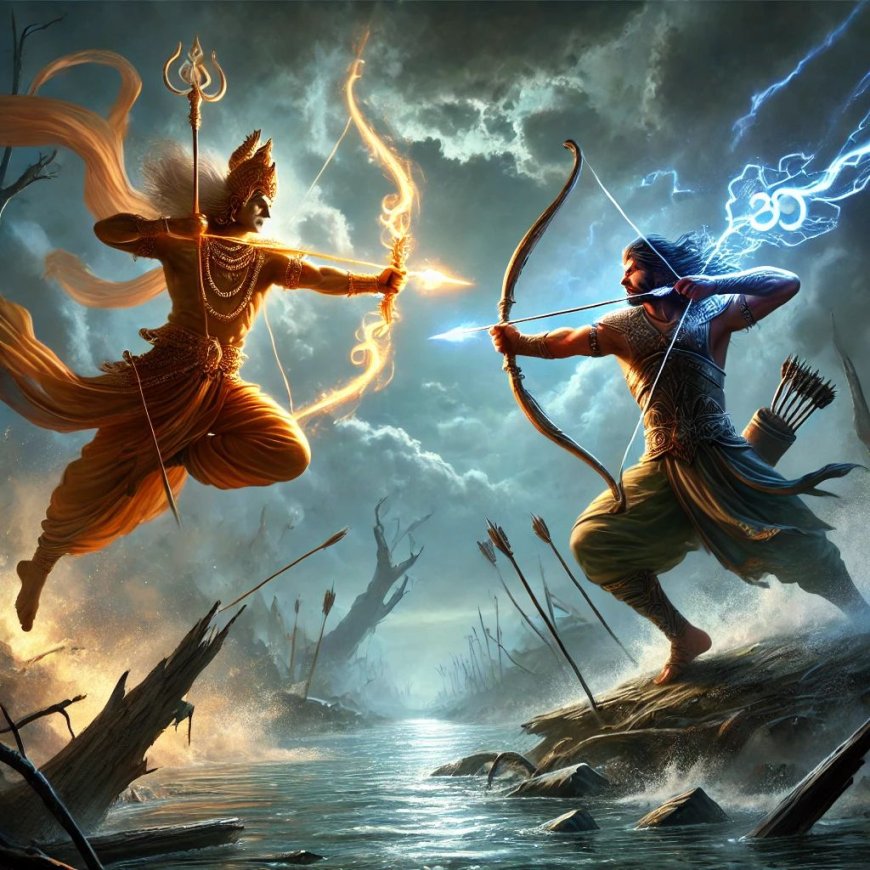
Aswatthama and Arjuna used their magic weapon (Source: Private Collection)
The clash of these divine weapons caused chaos in the world. Sages Narada and Vyasa arrived to neutralize their energies and rebuked Arjuna and Aswatthama. Arjuna, due to his purity, managed to retract his weapon, while Aswatthama could not because he lacked spiritual purity.
Aswatthama finally agreed to surrender the gem but then aimed his weapon at the womb of a Pandava woman, specifically Uttara's pregnant belly. Consequently, the fetus in her womb was destroyed.
Krishna cursed Aswatthama to wander for 3,000 years, suffering from disease and isolation. Though the fetus was dead, Krishna ensured it would be reborn as the wise king Parikshit. Aswatthama then went into the forest, burdened with suffering.
The Pandavas returned with the gem and met Draupadi, who was grieving. Bhima handed over the gem as a symbol of victory. Despite her desire for vengeance, Draupadi acknowledged Aswatthama's honor as the son of his teacher and requested Yudhishthira to wear the gem. With great mental strength, Draupadi relinquished her vow.
